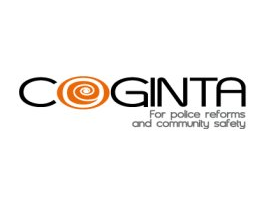Sorry, your search did not match any of our live jobs
We suggest that you:

JOB SUMMARY |
|
| Company | COGINTA |
| Industry | NGO/IGO/INGO |
| Category | International... |
| Location | Ghana |
| Job Status | Contractor/Co... |
| Salary | GH¢ |
| Education | Associated De... |
| Experience | 10 years |
| Job Expires | Mar 19, 2025 |
| Contact | ... |
| |
|
|
Company Profile The COGINTA Association (COGINTA) is a non-governmental, apolitical, areligious and recognized public utility organization, specializing in judicial and security governance, social cohesion, conflict management and prevention, resilience and community development. The objective of COGINTA building safer communities, promoting social justice. COGINTA work to support host governments in strengthening judicial and security institutions in compliance with the norms and principles of the rule of law, improve the efficiency of police institutions in the prevention of violence, insecurity and crime, and promote an environment conducive for peace, development and social cohesion. COGINTA has a head office in Geneva (Switzerland) and national and regional representations in Belgium, Burkina Faso, Ivory Coast, Ghana, Guinea, Mozambique, Niger and Chad.
Job Description Project Context
Ghana enjoys a relatively stable socio-political environment and remains one of the most dynamic economies in West Africa. However, the situation in northern Ghana gives cause for concern due to high poverty rates, poorly developed infrastructure, high youth unemployment, and numerous conflicts linked to resource management or feelings of marginalization. The long stretched of about 500 km of poorly controlled borders with Burkina Faso, Côte d'Ivoire and Togo, make northern Ghana fertile ground for cross border crimes such as trafficking and threats of extremist activities as happening in the Sahel.
COGINTA through the funding support of European Union is implementing a peace project title Preventing Violent Extremism and Supporting Peace in the Northern Border Regions of Ghana (PEACE PROTECT). The overall objective of this project is to prevent socio-economic, environmental, and political destabilization of the regions of northern Ghana. Funded by the European, the project seeks to enhance the capabilities of both government and non-government actors in their concerted efforts to sustain peace and contain the rise of violent extremism in crisis-prone areas.
The results to reach within the project are the following:
Study Rational
Artisanal small-scale mining (ASM) is a crucial economic activity in Ghana, particularly in rural areas. In Ghana, where resource-based conflicts are common, ASM represents both a potential driver of tensions and an opportunity for economic resilience and peacebuilding. Often referred to as "Galamsey," this illegal activity is widespread in several regions, particularly in the Western, Ashanti, Eastern, Central, and Northern regions of Ghana. It is estimated that 1 million people are directly involved in ASM in Ghana, with around 4.5 million people indirectly relying on it for their livelihoods. However, it has also raised significant political, health, social, environmental, security and governance challenges that impact peace and development. Given the strong ties between artisanal mining, community livelihoods, and crime and conflict dynamics, this study aims to explore opportunities linked to ASM in Ghana, with the goal of informing Coginta's programmatic responses." Eventually, the study’s outcomes could assist Coginta and the EU in developing programs that address the root causes of violent extremism, particularly by exploring the links between the formalization of galamsey and its impact on social cohesion, potential economic and social gains.
Coginta seeks two experts to support in assessing the issue of artisanal mining in Ghana for possible development of Coginta’s activities in the country. One expert will focus on the artisanal mining, its economy and the other expert on the sociological dynamics, linked vulnerabilities, impact on public security and conflict dynamics.
The main steps of the study would include:
The Methodology
Literature review: Review of Ghana's legislative, regulatory and policy frameworks on artisanal mining, existing data on the environmental, economic and social impacts of ASM, and comparative studies of formalization in similar contexts.
Field surveys and interviews: Visits to gold panning sites to observe practices and gather the views of stakeholders, including miners, local authorities, state representatives, NGOs and community leaders. Particular attention will be paid to the perception, involvement and impacts on women, children and, more broadly, vulnerable population groups.
Case studies: Analysis of successful value chain models in other countries to identify approaches that could be adapted to the Ghanaian context.
Responsibility/Duties of the consultant
The successful candidates will be responsible for the design, and use of participatory tools and approaches in conducting the assessment. It would conduct a research and analysis of the thematic, engage relevant stakeholders, collect data and report on policy and program recommendations.
Deliverables
Timelines And Deliverables
The assessment will take a total of 40 days x 2 experts spanning between January 2024 and March 2025 as shown on the table below.
The work will be jointly planned and organized with the programme Country Director under the supervision of the Operations Manager, Back Stopper, Technical Advisor and M&E officer. See table below:
Required Skills or Experience Qualification
Interested candidates must have the following competencies and expertise;
How To Apply Sorry, job has expired.
Note
Please note, employers receive numerous applications per posting and will only shortlist the most qualified candidates. Also Jobsinghana.com is not involved in any decision made by an employer/recruiter and therefore does not guarantee that applications sent will result in a candidate being shortlisted/selected for that position. | ||||||||||||||||||||||||||||||||||||||||||||||||||||||||||||||||||